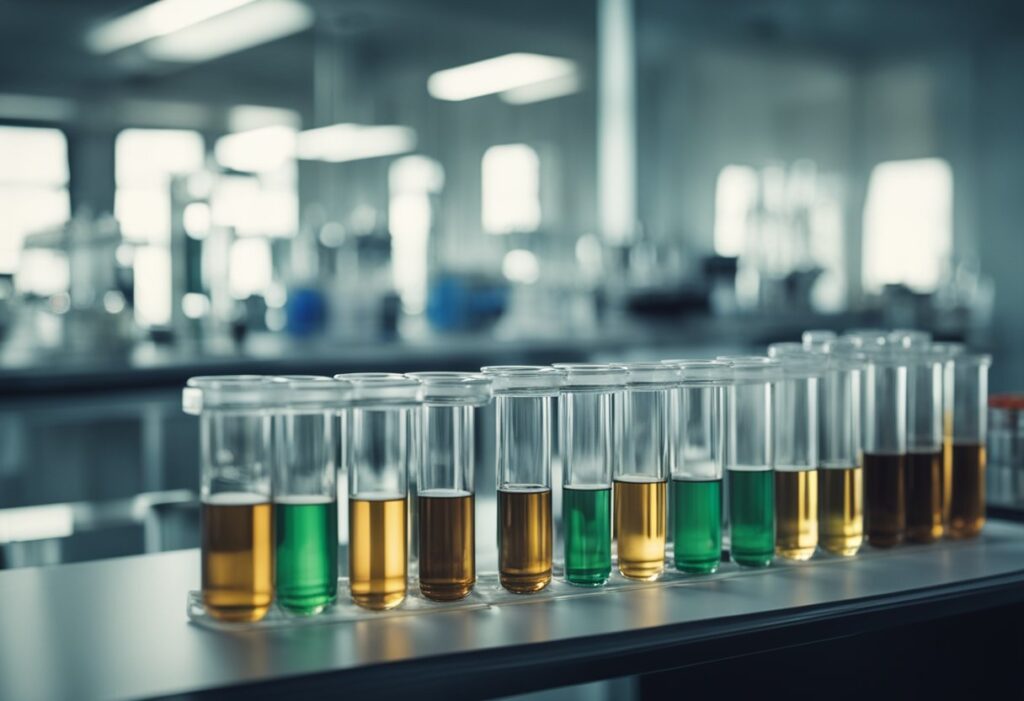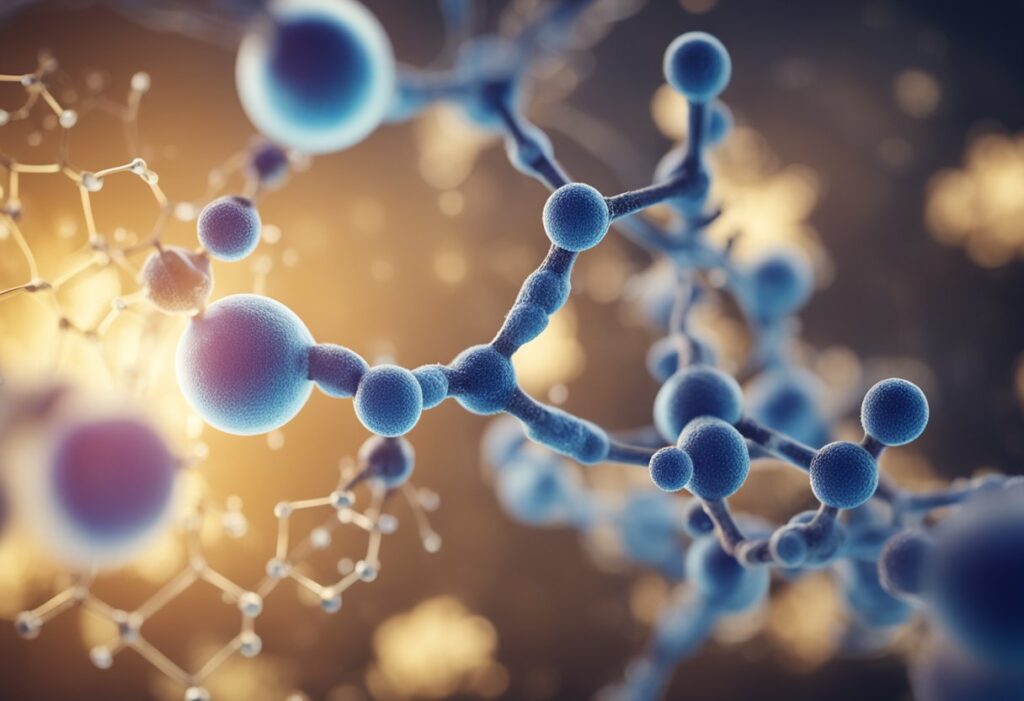As you grow older, your body undergoes various changes, and managing these age-related transformations becomes a key concern. One compound that has drawn attention in this context is diindolylmethane, also known as DIM. This naturally occurring compound is found in cruciferous vegetables such as broccoli, Brussels sprouts, and cabbage. DIM plays a role in promoting balanced hormone metabolism, which is particularly important as you age, considering that hormonal imbalances can affect a wide range of bodily functions.

Research suggests that DIM has a significant impact on estrogen metabolism, making it a topic of interest when looking at healthy aging. By supporting a balanced level of estrogen, DIM is thought to contribute to maintaining the health of various tissues and organ systems. It’s also linked to certain protective effects at a cellular level, influencing mechanisms that can potentially safeguard against age-related conditions.
Understanding how DIM influences your aging process can empower you to make informed decisions about your diet and possibly consider supplementation. Including ample cruciferous vegetables in your meals may provide your body with the benefits of diindolylmethane, potentially assisting in maintaining your vitality and well-being as years go by.
Diindolylmethane and Its Role in Aging

Diindolylmethane, or DIM, is a compelling compound with evidence supporting its potential to influence aging processes at the cellular level. This section explores the biochemical properties of DIM and its effects on cellular aging.
Biochemical Properties of Diindolylmethane
Diindolylmethane is a compound derived from indole-3-carbinol, found in cruciferous vegetables like broccoli and kale. In your body, DIM works to support the function of antioxidant enzymes, which are crucial in combating oxidative stress—a key factor in the aging process. The presence of DIM has been noted to promote a healthier balance of genetic expression related to longevity and well-being.
The compound’s chemical structure allows it to interact with various cellular pathways, including the Akt pathway, which is significant for maintaining cellular health and vitality. By engaging with these pathways, DIM supports your body’s natural defenses against the harmful effects of reactive oxygen species (ROS), thereby potentially reducing the cumulative damage to cells that can lead to signs of aging.
The Impact of Diindolylmethane on Cellular Aging
As you age, the processes of apoptosis and the body’s ability to manage damaged cells become increasingly important. DIM has been observed to influence these processes by supporting the body’s natural regulation of cell cycle and death, which in turn, may slow the progression of aging at a cellular level.
Further, the compound has been connected with potential improvements in memory and mood, aspects often affected by the aging process. By supporting the health of your brain cells through the action on genetic expression and antioxidants, DIM could play a role in maintaining cognitive function as you age. While research is ongoing, the inclusion of DIM-producing vegetables in your diet might contribute to an overall strategy aimed at preserving health during the aging process.
Health Implications of Diindolylmethane

Diindolylmethane (DIM), a chemical formed from the digestion of cruciferous vegetables, plays a significant role in your long-term health, particularly in disease prevention and hormonal balance.
Diindolylmethane in Cancer Prevention
DIM has attracted attention for its potential in cancer prevention, specifically concerning hormone-responsive cancers such as breast, prostate, and uterine cancer. Studies have demonstrated that DIM can modulate estrogen metabolism, which may lead to a reduced risk of cancer cell formation. Moreover, DIM has been scrutinized for its effect on prostate cancer cells, indicating a possible protective mechanism.
- Cruciferous vegetables: Potential cancer risk reducer via DIM
- Breast and prostate cancers: DIM influences estrogen and testosterone pathways
Hormonal Effects and Implications for Diseases
The impact of DIM on estrogen levels can have wider hormonal effects that may influence other diseases, including obesity, heart disease, and diabetes. By altering the balance of hormones, DIM supplements could help manage conditions linked to hormonal fluctuations. However, it’s essential that you discuss with a doctor before integrating DIM supplements, especially if you are already on medication.
- Estrogen metabolism: DIM’s role in maintaining hormonal balance
- Disease prevention: Heart disease, diabetes, stroke
Safety Profile and Potential Adverse Effects
Although DIM is generally safe when consumed through food, the use of concentrated dietary supplements warrants caution. Potential side effects may occur, particularly if taken in large doses or in conjunction with certain drugs. Therefore, it’s crucial to consult with healthcare providers to identify any possible contraindications and ensure the safety of DIM supplementation in your diet.
- Dietary source vs. supplement: The importance of moderation in DIM intake
- Consultation imperative: Communicating with a healthcare provider to avoid adverse effects
Conclusion
Diindolylmethane (DIM) is a compound that has garnered attention for its potential role in managing estrogen metabolism, which can have implications for your health, particularly as you age. Studies have indicated that DIM may support the regulation of estrogen, potentially resulting in a balance that is conducive to maintaining health.
In the context of aging, your body undergoes various changes, and hormonal balance is crucial in managing some of the associated effects. The indications that DIM supplementation could lead to a significant decline in fibroglandular tissue on MRI in women who are BRCA carriers suggests further investigation into DIM’s impact on aging and cancer risk is warranted.
Moreover, various health benefits such as reduced symptoms of PMS and a potential to slow the growth of some cancer cells are associated with DIM. These findings highlight the importance of continued research to understand the full scope of DIM’s health-promoting properties as they may influence age-related processes.
It’s imperative to acknowledge the current evidence while awaiting larger, randomized studies to corroborate these early findings. As you consider DIM as a supplement, it should be done with the advice of a healthcare provider to ensure it aligns with your specific health needs and circumstances.
Your proactive approach towards health can benefit from staying informed about developing research on supplements like DIM and their role in aging. However, the commitment to a balanced diet, regular exercise, and preventative health measures remains your foundation for healthy aging.
Frequently Asked Questions
In this section, you’ll find detailed answers to some of the most commonly asked questions regarding Diindolylmethane (DIM) and its effects on health and aging, specifically geared towards understanding its risks and benefits.
What are the potential health benefits of taking Diindolylmethane for men?
DIM supplementation may contribute to maintaining healthy testosterone levels in men, which can support muscle mass, energy levels, stamina, and libido. Additionally, DIM could also help in protecting against prostate issues and improve bladder control.
Is there a risk of increased blood pressure when taking Diindolylmethane supplements?
Currently, there’s no direct evidence suggesting that taking DIM supplements leads to an increase in blood pressure. However, as with any supplement, it’s essential to monitor your body’s response and consult with a healthcare provider for personalized advice.
What are the recommended DIM dosages for managing estrogen dominance?
For managing estrogen dominance, dosages of DIM may vary. It is crucial to follow reputable supplement guidelines or professional healthcare advice, typically ranging from 100 to 200 mg per day, adjusted based on individual needs and responses.
Can stopping the intake of Diindolylmethane supplements lead to any withdrawal effects?
There are no well-documented withdrawal effects associated with stopping DIM. It is a naturally occurring compound, and if you decide to discontinue use, your body is likely to adapt without significant withdrawal symptoms.
What are the common side effects experienced by females taking Diindolylmethane?
Women taking DIM may experience various side effects, including but not limited to, headache, upset stomach, and changes in menstrual periods. It’s vital to consult with a healthcare provider to ensure safe and appropriate use.